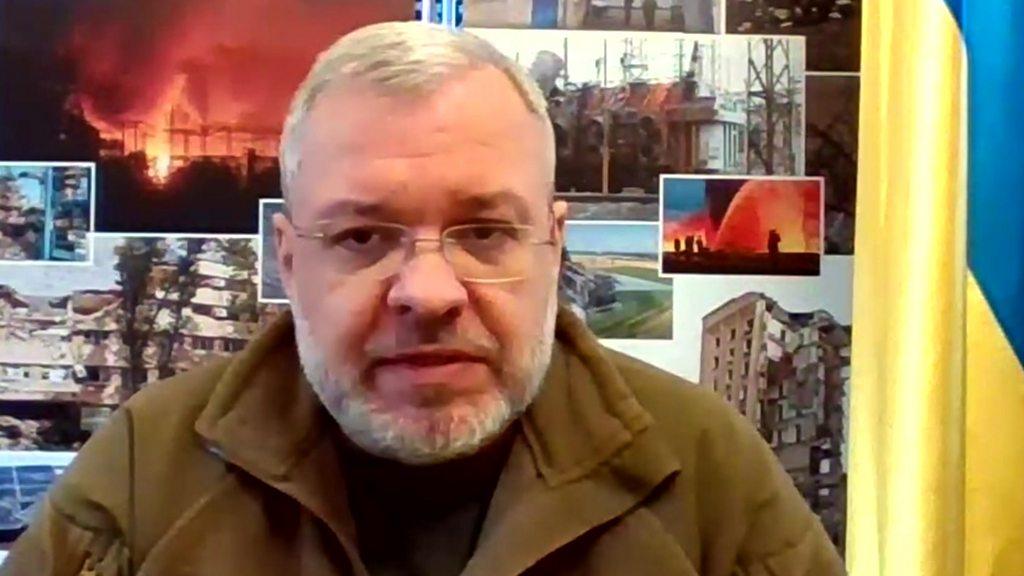Ukraine round-up: Kyiv strikes and German spy chief fired
- Published
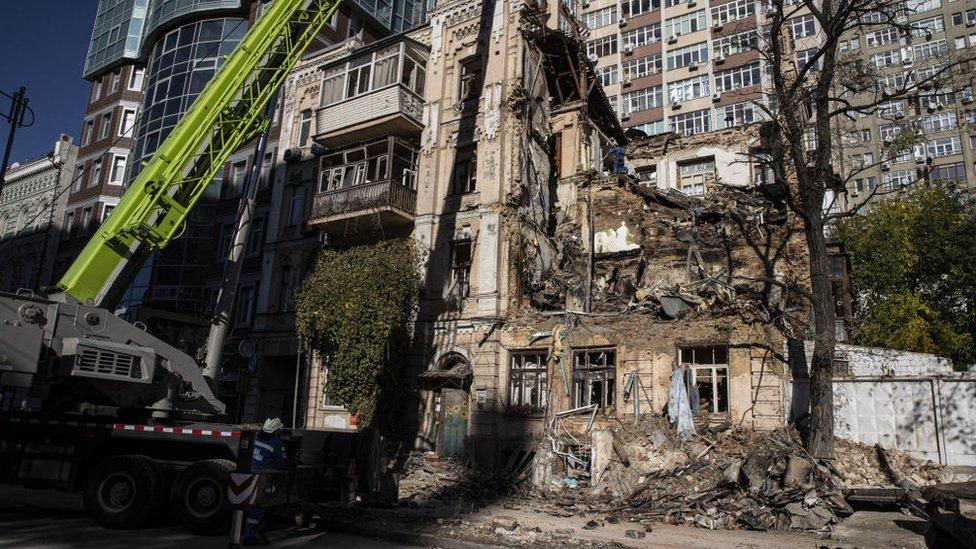
The aftermath of Tuesday's strikes on Kyiv.
At least three people have been killed by Russian strikes in the Ukrainian capital Kyiv, as Moscow continues to target key infrastructure across the country.
Kyiv Mayor Vitaliy Klitschko said that the victims of the latest Russian attacks were employees of "critical infrastructure", adding that two facilities in the city had been hit.
Meanwhile, thousands of towns and cities across the country have been left without power and President Volodymyr Zelensky said Russian strikes had destroyed about 30% of Ukraine's power stations over the past eight days.
The latest attacks came 24 hours after "kamikaze" drones - believed to have been supplied by Iran - killed at least nine people in Kyiv and Sumy, in the north-east.
Ukraine has identified the drones used in deadly attacks on Kyiv and the eastern city of Sumy as Shahed-136 unmanned aerial vehicles (UAVs). They are known as Geran-2 in Russia.
Earlier, the US said it agreed with its French and UK allies that the supply of drones by Iran violated a UN Security Council resolution linked to a nuclear agreement, barring the transfer of certain military technology.
Read more about the latest developments in Ukraine here.
The Russian attacks prompted Ukraine's energy minister to call for international help to "close the sky" over his country to protect its energy infrastructure.
Herman Halushchenko told the BBC Hardtalk programme that the strikes, including from missiles, had caused vast amounts of damage to his country.
Ukraine Energy Minister Herman Halushchenko: "We need to close the sky"

Nord Stream blast 'blew away 50 metres of pipe'
At least 50 metres (164ft) of an underwater pipeline bringing Russian gas to Germany is thought to have been destroyed by a blast last month.
Video shot by a Norwegian robotics company and published by Swedish newspaper Expressen appears to show the massive tear in the Nord Stream 1 pipe. Danish police believe "powerful explosions" blew four holes in the pipe and its newer twin, Nord Stream 2.
Watch: Swedish newspaper's undersea video of 'blown-up Nord Stream 1 pipeline'
It is still unknown who or what caused the blasts amid suspicions of sabotage. Western leaders have stopped short of directly accusing Russia but the EU has previously accused Moscow of using its gas supplies as a weapon against Ukraine's allies.
The Kremlin has accused Western investigators of seeking to blame Russia for the damage. "Elementary logic" shows damaging the pipeline was not in Moscow's interest, presidential spokesman Dmitry Peskov said on Tuesday.

German cybersecurity chief fired over Russia connections
Germany's cybersecurity chief, Arne Schönbohm, has been fired after allegations of being excessively close to Russia through an association he helped set up.
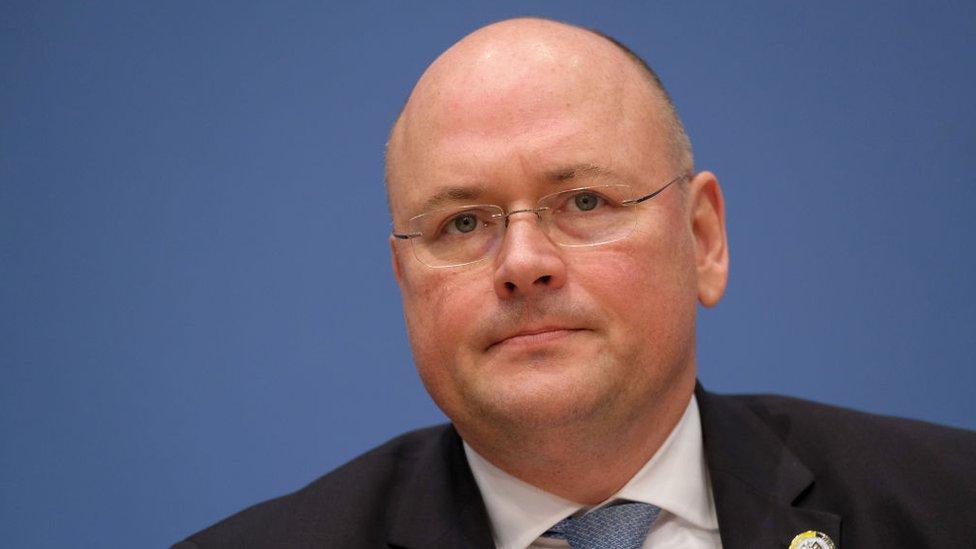
Mr Schönbohm has led the Federal Cyber Security Authority (BSI) - charged with protecting government communications - since 2016, but was accused by German media of having had links with people involved with Russian intelligence services.
His former employer, a private company called the Cyber Security Council Germany, is accused of having a subsidiary of a Russian firm set up by an ex-KGB officer as a member. The company denies any wrongdoing.
A spokesperson for Interior Minister Nancy Faeser said public trust in Mr Schönbohm's "neutrality and impartiality" had been damaged, but emphasised that the security chief would be "presumed innocent" while an investigation into the allegations was conducted.

Republican leader hints at cutting Ukraine funding
The leader of the Republican Party in the US House of Representatives has hinted that he could seek to slash aid to Ukraine if the party wins November's midterm elections.
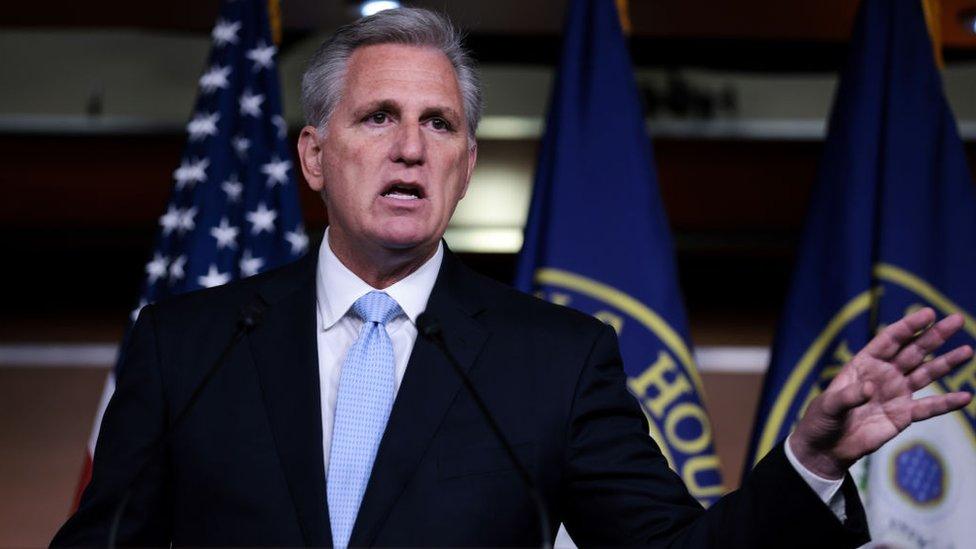
Kevin McCarthy told the US media outlet Punchbowl News that President Joe Biden's huge financial support for Ukraine meant that other areas, including border control - a massive priority for Republican legislators - had been ignored.
"I think people are gonna be sitting in a recession and they're not going to write a blank cheque to Ukraine," he said. "Ukraine is important, but at the same time it can't be the only thing they do and it can't be a blank cheque."
The US has so far provided billions of dollars of military and humanitarian aid to Ukraine, and in a call with President Volodymyr Zelensky last week Mr Biden vowed to continue that support.
- Published18 October 2022
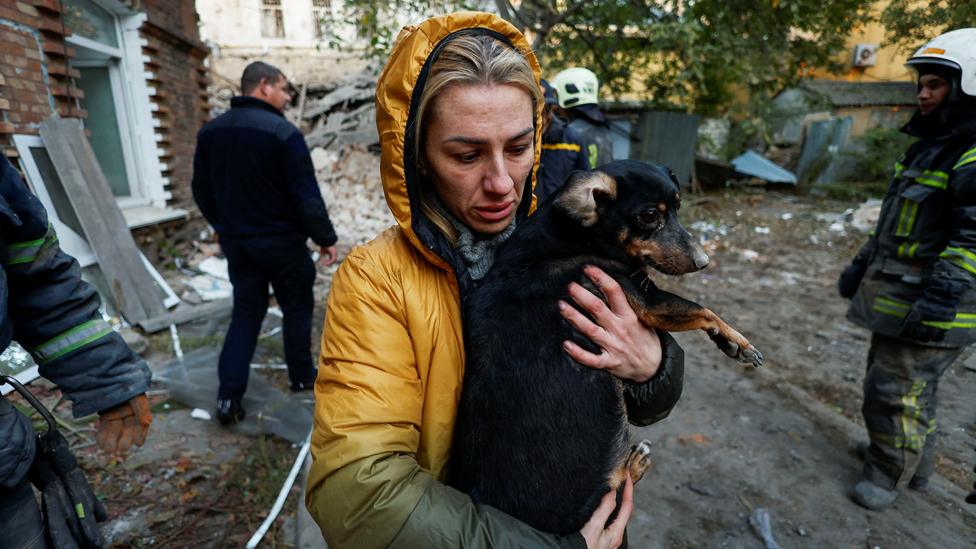
- Published18 October 2022
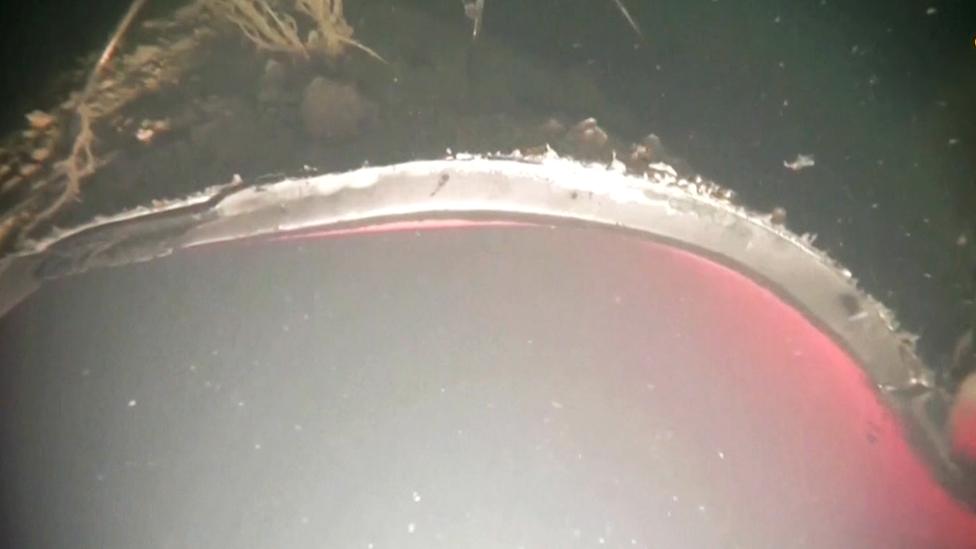
- Published18 October 2022
